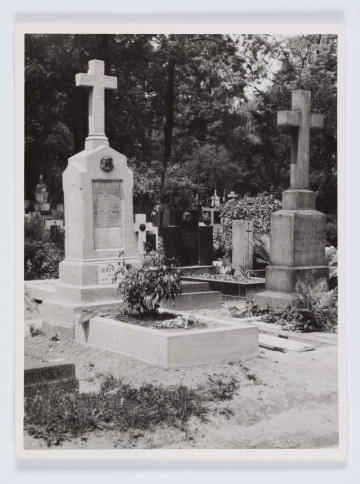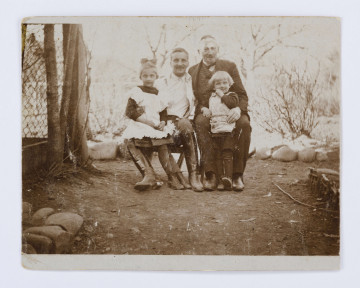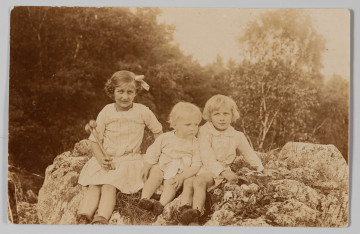
Tomb of the Pol family at the Rakowicki Cemetery in Kraków
1970 — 1979
National Museum in Lublin
Part of the collection: Wincenty Pol
Written in Paris on the 26th of January 1867, it was one of several letters exchanged between Wincenty Pol, Franciszek Henryk Duchiński and his wife Seweryna in 1866-1867, in which the parties informed each other of their literary or scientific achievements and intentions, discussed their views and courteously congratulated each other on the results of their efforts to date.
Franciszek Henryk Duchiński (1816-1893) was an ethnographer, historian, émigré political activist and publicist. He spent his school years in Berdyczów, and in 1834 began his studies at Kiev University. His interests focussed on Slavic studies. He advocated ethnic separation between Ukraine and Russia, criticised the idea of Pan-Slavism propagated by the Russians, denying them Slavic origin. In 1846, escaping from the pursuing tsarist police, he went into exile in Paris. Two years later, during the Spring of Nations, he found himself in Italy, where he joined General Władysław Zamoyski's legion. In the years 1849-1856, he was active in Turkey. During the Crimean War, he gave lectures on political subjects in the allied camps in Crimea. From 1856, he stayed in England, and in 1861 returned to Paris, where he developed an active journalistic career. In the years 1858-1861 he published a three-volume work entitled Zasady dziejów Polski i innych krajów słowiańskich [Principles of the History of Poland and Other Slavic Countries]. He became vice president of the French Ethnographic Society and taught history at the Polish school in Montparnasse. As a result of the rapprochement between France and Russia in 1871 he was forced to move to Switzerland, where he became curator of the Polish National Museum in Raperswil and editor of an important international ethnological journal, Révue historique, éthnographique et statistique. Visiting Galicia twice, he made unsuccessful efforts to obtain a chair of ethnography and history at Jagiellonian University in Kraków. In 1875, he founded the journal Przegląd Etnograficzny [Ethnographic Review] in that city. He was buried in Montmorency, near Paris.
Author / creator
Dimensions
cały obiekt: height: 13,5 cm, width: 21 cm
Object type
manuscript
Technique
manual script
Material
paper, ink
Creation time / dating
Creation / finding place
Owner
The National Museum in Lublin
Identification number
Location / status

1970 — 1979
National Museum in Lublin

1901 — 1925
National Museum in Lublin

1901 — 1925
National Museum in Lublin
DISCOVER this TOPIC
Museum of King Jan III's Palace at Wilanów
DISCOVER this PATH
Educational path